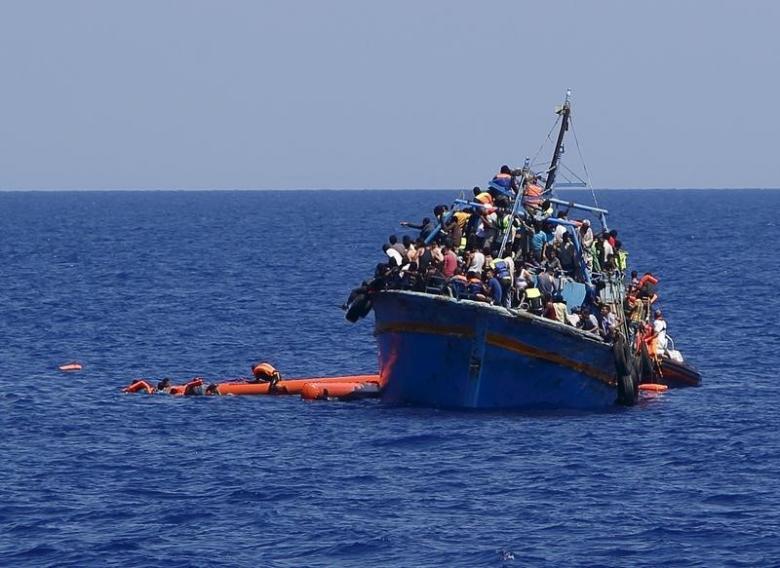
An overloaded ship capsized and sank off the coast of Greece on June 14, in one of the deadliest shipping disasters in Europe in recent years. The sank boat had been carrying approximately 750 people, many from Syria and Egypt. Almost immediately, news of the tragedy provoked calls for European authorities to overhaul their border protection measures. It also brought outpourings of grief from families whose loved ones were aboard the ship. Caretaker Greek Prime Minister Ioannis Sarmas declared three days of national mourning, expressing “our thoughts to all the victims of the ruthless people who exploit human unhappiness.”
The cause of the sinking was not immediately apparent. The Greek coast guard reported that it had approached the fishing boat, on its way from Turkey to Italy, on Wednesday and offered assistance, but the passengers refused, saying they wished to continue their journey. They began to veer from side to side, and the vessel capsized. A few hours later, 104 survivors were pulled from the water, and 78 bodies of those who drowned were recovered.
But the Greek coast guard has faced criticism for handling the incident. A video has emerged – reportedly shot from the Malta-registered freighter Faithful Warrior – claiming to show the Greek coast guard offering supplies to the migrant boat. BBC Verify checked the video, and it matched the shape of the migrant ship, the weather conditions, and the time frame the Greek coast guard reported.
The charity Alarm Phone, which runs several hotlines for migrants at sea, was contacted by people on board the boat that sank on Tuesday afternoon. Kathimerini reports that it notified the local authorities, the EU border agency Frontex and the Greek division of the UN refugee agency. A spokesperson for Alarm Phone told Reuters that the boat had said it did not require assistance and that its captain had left on another vessel.
It needs to be clarified why the people on board were so determined to reach Italy, which has strict asylum rules. But the sank vessel is only one of many recently lost in the Mediterranean. A flurry of activity has been underway to reduce the number of migrants making the dangerous crossing. EU interior ministers have agreed on radical reforms to migration laws, and a new pact with Tunisia was signed last week with specific funds to limit the number of arrivals.
The relatives of those on the sank boat are now in Greece and struggling to find information about their loved ones. One man in Kobani, a Kurdish-majority town in northeastern Syria, says five of his family members were on the sank boat. He has seen photos of some survivors but is still searching for others he has heard nothing about since the tragedy.


